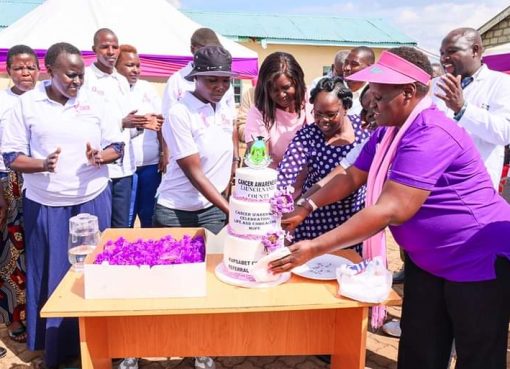The National Government through the State Department for Culture and Heritage has commenced the process of documentation and digitalization of indigenous Knowledge and Associated assets in Narok County.
The process was launched by Principal Secretary in charge of Culture and Heritage Ms. Ummi Bashir who said Narok County was among the 13 counties selected in the pilot phase to document their Indigenous knowledge as it is very rich in culture.
She said among the things they will be documenting are the traditional foods, traditional medicine, Maasai dressings, beadwork which will later be commercialized to improve the economy of the local people.
“We want to secure and document our indigenous knowledge so that our grandchildren will benefit with a rich traditional knowledge. At the press of a button, one can get all the information about a certain culture,” she said.
The function was attended by Governor Patrick Ntutu who confirmed that the Maa Community was rich in knowledge which if not documented and could easily be forgotten if not well documented.
“I am very passionate about the Maasai culture and as the Swahili people say ‘Mwacha mila ni mtumwa.’ We have to keep telling our children about our culture so that we can preserve it for posterity,” he said.
The governor reiterated they have identified 30 youth to champion the documentation process, who will move in every village to gather and document the indigenous knowledge.
“These young people will pioneer in the process of documenting our indigenous knowledge. Among them are age-set chiefs who are well conversant with the Maasai culture,” said Ole Ntutu.
The first time governor observed that if the Maasai Mara National Reserve was not preserved by a set of elders back in 1948, then the Narok people could not be encouraged to host a World-class National Reserve in their county.
“I can tell you for free that if it were not for the Maasai Mara, the many projects you have seen me launching in the recent past could not be a reality. This means preserving our indigenous knowledge and assets could bring this county more gains,” he said.
Dr. Evans Taracha, a chief researcher at the National Museum, who had trained the 30 youths for one week, said they will move around the county in the next 30 days to document the indigenous knowledge and later uploaded in the system after which they will look for a way to add value to the content before marketing it abroad.
Dr. Taracha assured the residents that their content will not be used without their knowledge as there are legal frameworks that govern the process so that only the local communities can benefit from it.
Also in attendance was Narok County Commissioner Evans Masinde, Narok Director of Culture Violet Sikawa, Maasai Council of elder’s chairman Kelena Ole Nchoe and a number of County Executive Committee Members.
During the function, the County Secretary Mayian Tuya and Elders representatives signed an agreement that the content collected will be only used to benefit the local community.
Other counties where similar activities are ongoing include Kilifi, Murang’a, Makueni, Garissa, Tharaka Nithi, Marsabit, Kericho, Turkana, Kakamega, Siaya, Vihiga and Kisii.
By Ann Salaton




